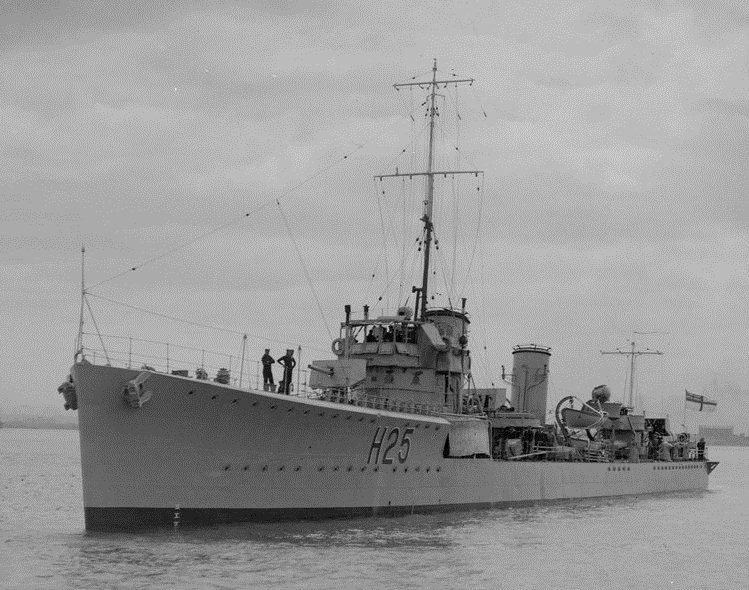
First introduced on the rearmed scout cruiser Foresight in 1913, the Mark IV armed many destroyers and flotilla leaders of World War I. The Marks XII, XII* and XXII were an interchangeable series of guns based upon the Mark IV, but specially adapted for "wet mountings" on submarines. The first Mark XII was issued to submarine L33 in October 1919.
The Army experimented with one Mark IV gun for anti-aircraft use in 1913. In 1938 it was proposed to convert 900 Mark IV guns to HA use but this was never carried out.
The Mark IV developed a reputation during World War I for repeatedly jamming.
The Mark IV was constructed of inner A tube, A tube, jacket and breech ring and was partly wire wound. This gun had a horizontal sliding breech block with semi-automatic operation. The Mark IV* had a strengthened breech ring, but this distinction was discontinued after a short time. Mark XII had a tapered inner A tube, A tube, wire for about half the length, jacket over more than half the length and a breech ring. The Mark XII* and Mark XXII had monobloc barrels and had a manually-operated horizontal sliding breech block. The Mark XII* had no muzzle bell and the breech ring was shaped while the Mark XXII had a muzzle bell and a rectangular breech ring.
Of the 1,141 Mark IV guns produced, 979 were still in service in 1939. 60 Mark XII, 52 Mark XII* and 46 Mark XXII were also made. 58 of the Mark XII guns were still in service in 1939.
A Note on Sources: Norman Friedman in "Naval Weapons of World War One" lists the submarine Mark XII as a derivative of the Mark V (45 calibers) but all other sources, including "Naval Weapons of World War Two" by Campbell, list the Mark XII as a derivative of the submarine fixed ammunition Mark IV (40 calibers). An analysis of photographs seems to show that the Mark XII was 40 calibers.
| Designation | 4"/40 (10.2 cm) QF Mark IV
4"/40 (10.2 cm) QF Mark XII 4"/40 (10.2 cm) QF Mark XXII |
|---|---|
| Ship Class Used On | Mark IV
World War I: "Scout" light cruisers (1913); Marksman, Grenville, "K", "L", "M" and "S" destroyer classes; rearmed Faulknor, Talisman and Medea classes; and "J", "K", "L", "O" and "P" class submarines World War II: Many minor warships and merchant aircraft carriers during World War II Mark XII, XII* and XXII
|
| Date Of Design | Mark IV: About 1904
Mark XII: About 1918 Mark XXII: About 1944 |
| Date In Service | Mark IV: 1908
Mark XII: 1919 Mark XXII: 1944 |
| Gun Weight | Mark IV: 1.225 tons (1,245 kg)
Marks XII, XII* and XXII: 1.297 tons (1,318 kg) |
| Gun Length oa | 166.6 in (4.232 m) |
| Bore Length | 160 in (4.064 m) |
| Rifling Length | N/A |
| Grooves | 32 |
| Lands | N/A |
| Twist | N/A |
| Chamber Volume | 287 in3 (4.70 dm3) |
| Rate Of Fire | about 13 rounds per minute |
| Type | Mark IV for destroyers: Separate
Mark IV for submarines: Fixed Marks XII and XXII: Fixed |
|---|---|
| Weight of Complete Round | HE: 47.5 lbs. (21.5 kg) (original rounds)
HE: 52.3 lbs. (23.7 kg) (later rounds) |
| Projectile Types and Weights | All Gun Marks: HE: 31 lbs. (14.1 kg)
Gun Marks XII and XIII only: HE: 35 lbs. (15.9 kg) 1 |
| Bursting Charge | N/A |
| Projectile Length | N/A
Lighter complete round: 35.87 in (91.1 cm) Heavier complete round: 36.75 in (93.4 cm) |
| Propellant Charge | World War I
5.11 lbs. (2.3 kg) MD16 World War II
|
| Muzzle Velocity 2 | Mark IV
World War I: 2,370 fps (722 mps) World War II: 2,177 fps (664 mps) Marks XII and XXII
|
| Working Pressure | N/A |
| Approximate Barrel Life | Marks IV: N/A Marks XII, XII* and XXII: 8,000 rounds |
| Ammunition stowage per gun 3 4 | N/A |
- ^The heavier projectile was issued to submarines starting in late 1944.
- ^The sources below differ as to the muzzle velocity and range of these weapons. I have chosen to use those values given in "Naval Weapons of World War Two" which are for 3crh shells.
- ^Outfits included SAP, HE, shrapnel and star shells.
- ^Submarine outfits included SAP, HE, 10 rounds of HE with RDX/TNT fillings and 10 star shells.
| Designation | Single Pedestal Mountings
Foresight (9) and Destroyers (4): PIX 1a Modified "R" Class: CPIII 2a Submarines (1): SI |
|---|---|
| Weight | PIX: 3 tons (3.1 mt)
CPIII: 4 tons (4.1 mt) SI: 5 tons (5.1 mt) |
| Elevation | PIX: -10 / +20 degrees
CPIII: -10 / +30 degrees SI: -3 / +20 degrees |
| Elevation Rate | Manually operated, only |
| Train | PIX and CPIII: 360 degrees
SI: About +120 / -120 degrees |
| Train Rate | Manually operated, only |
| Gun recoil | Mark IV: N/A
Marks XII, XII* and XXII: 36 in (91 cm) |
- ^Some PIX mountings were converted to HA use and used in the "K" class Garland, Paragon, Porpoise, Unity and Victor (one each).
- ^CPIIIc was a modification to move the gun back in the cradle while the cradle was moved forward in an effort to improve the balance.
- A proposal to use these as starshell guns was made during World War II and one experimental Mark XXI HA/LA mounting was built to test the concept. Apparently the results were unsatisfactory as no more were built or planned.

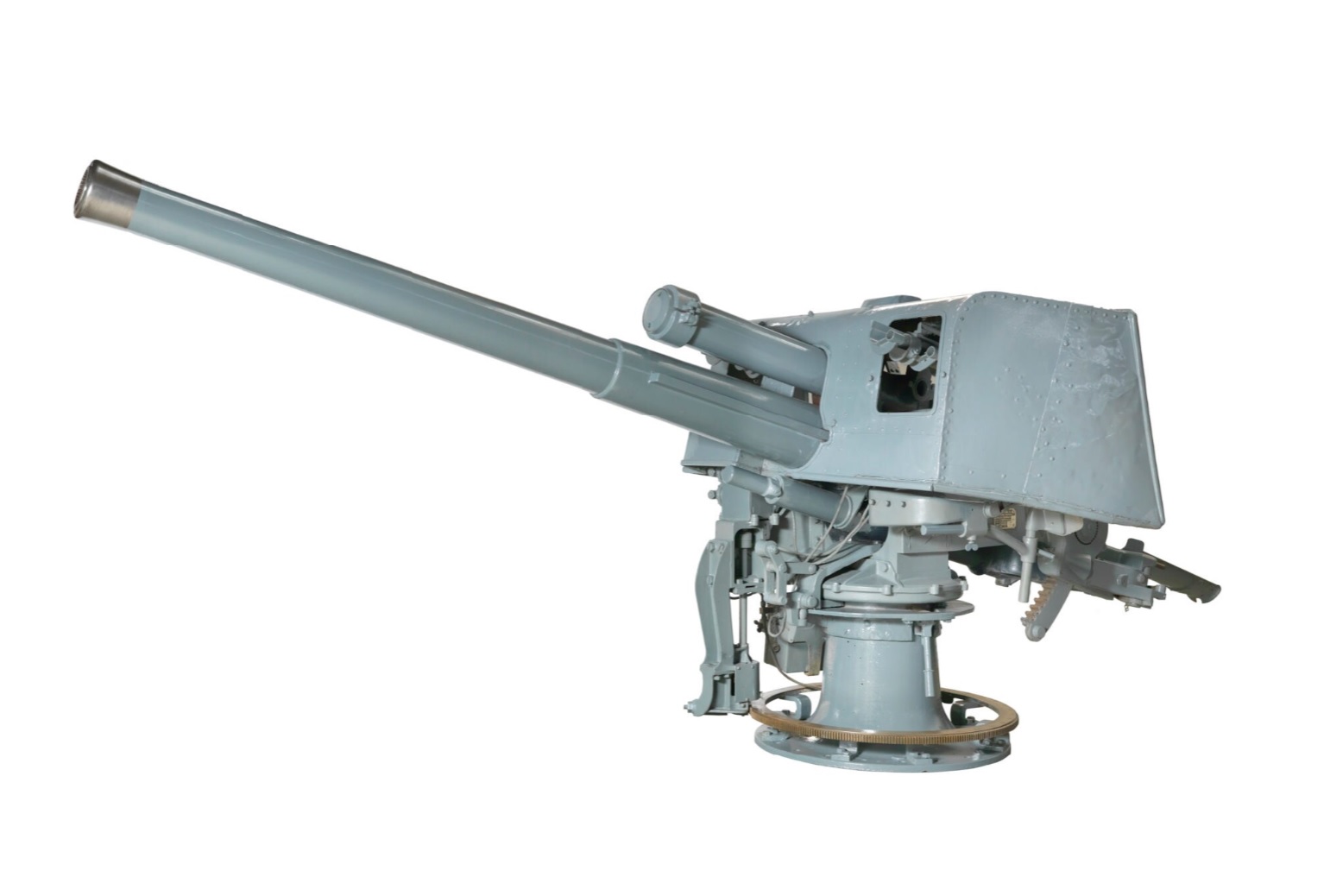
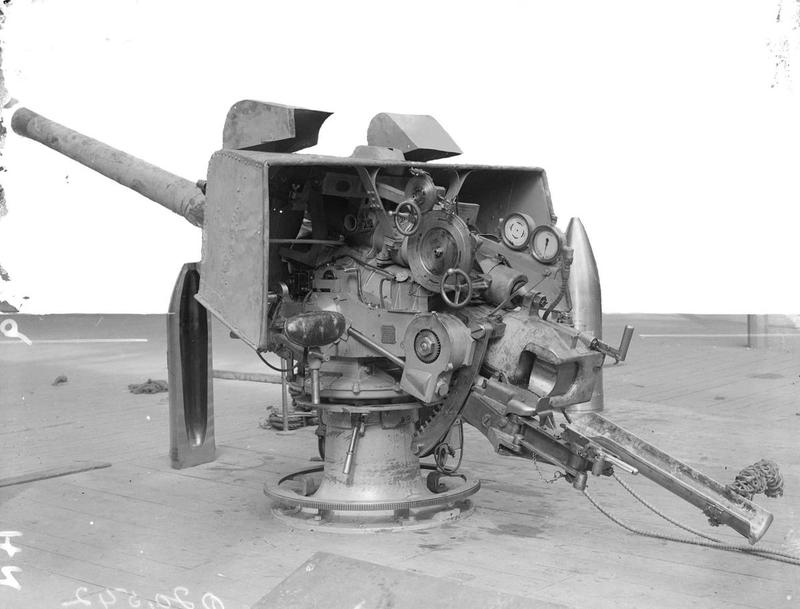

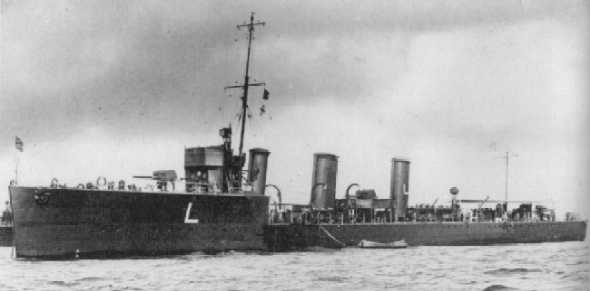

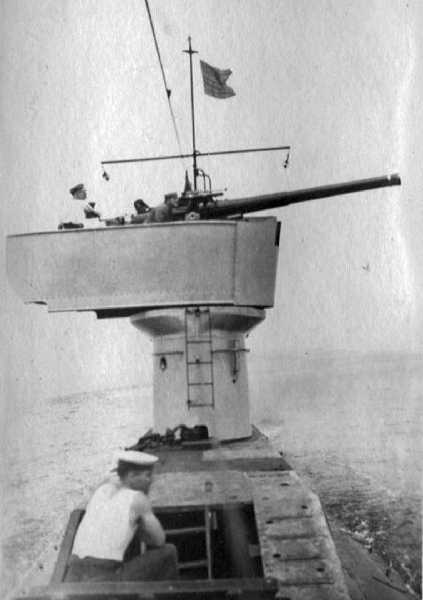
The Vickers Photographic Archive
See Mk XII and submarine deck gun 1939 (Mark XXII)
"Battlecruisers - Warship Special No. 1", "Naval Weapons of World War Two" and "British Naval Guns 1880-1945 No 18" article in "Warship Volume X" all by John Campbell
"Conway's All the World's Fighting Ships 1906-1921" by Randal Gray (ed)
"T Class Submarines" article by John Lambert in "Warship Volume III"
"Cruisers of the Royal and Commonwealth Navies" by Douglas Morris
---
Special help from Dave Alton and Richard Worth
13 October 2008 - Benchmark
12 February 2012 - Updated to latest template
16 June 2012 - Added picture of HMAS Tasmania
04 September 2012 - Added "A Note on Sources"
15 December 2013 - Added Additional Pictures
18 June 2014 - Added photograph of HMS Satyr
29 November 2015 - Changed Vickers Photographic Archive links to point at Wayback Archive Page
11 December 2021 - Converted to HTML 5, reorganized notes
12 February 2024 - Added IWM photograph of gun from HMS Lance
